When it comes to choosing a drug for work, the doctor always faces a lot of questions and doubts. It is necessary to choose a high-quality drug that would meet a million criteria: the purity of hyaluronic acid, the correct concentration, the presence of BDDE, elasticity, firmness, biocompatibility, lifting effect, elimination time from body tissues, etc. It's hard!
All companies presenting this product on the market promise an incredible effect. They bombard doctors with terms: cohesiveness, adhesion & hellip; That's all right, but how can I check it?
Elena Stoyanova: "Reality and science fiction don't always go together. Being in Pringe at the Allergan production I was impressed by the medical device development department – simple syringes with hyaluronic acid."
The history of the evolution of the hyaluronic acid syringe

The first syringes with hyaluronic acid were absolutely simple and made of medical glass. Convenient for sterilization and clear in use. But it turned out that the development of cosmetic techniques showed that the use of such syringes is not convenient. They are too small, the graduations are hard to see and the surface is too smooth.
Follow us on Instsgram!
That's why new medical plastic syringes have been developed. Thanks to plastic, it has become possible to make the syringe larger by changing the inner and outer diameter.
The same 1.0 ml volume looked larger. This proved to be more convenient for working in delicate areas, when you need to precisely control a small amount of injected gel.
At the same time, the length of the syringe with the piston raised should be comfortable enough to start working – is the proportion between the length of the arm stretch from the tip of the little finger to the knuckle of the thumb.
Too large syringe makes one-handed technique impossible.
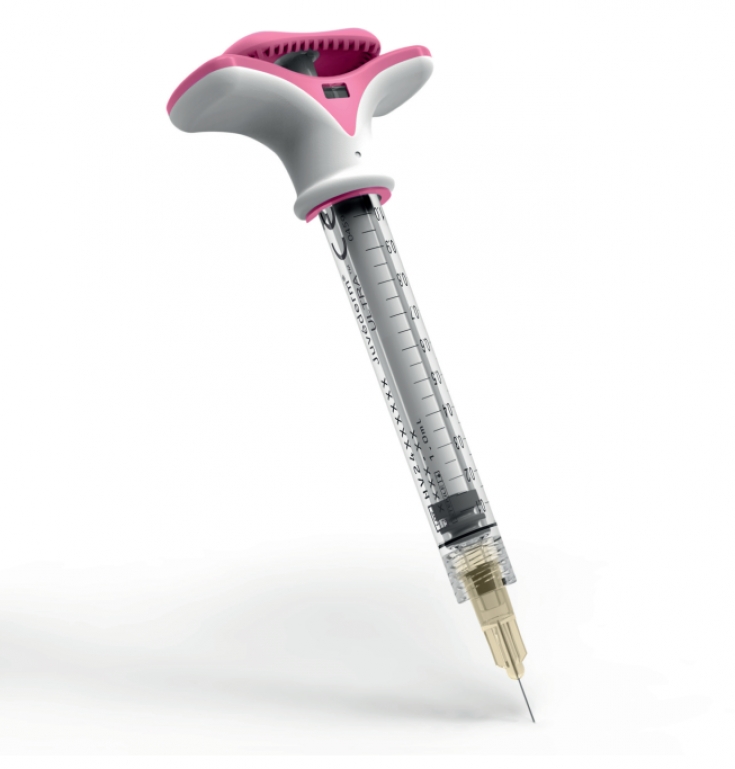
In the photo ULTRA_SYRINGE_1
The next difficulty arose with the Syringe Tip Cone. In glass syringes it was smooth. Hyaluronic acid is a fairly dense product that is injected through a thin needle under high pressure.
A common complication that doctors complained about was the needle coming off the syringe during operation. As a result, the loss of the drug. The solution was: change the tip taper to a luer lock.
This minimized the complexity of the work.
How to Avoid Pain During Hyaluronic Acid Injections
This question is puzzled not only by patients, but also by cosmetologists. Painful sensations arise not so much from the injection of the drug itself, most often we work in layers where pain sensitivity is negligible, but from the puncture itself.
The right choice of drug for injection lip correction
You can use a very thin needle, but the drug will not mechanically pass through it. The solution was suggested by TSK – thin-walled needles. A high-grade steel needle can be quite thin, and its inner diameter has been expanded. This made the insertion less traumatic and painful.
Particular attention is paid to the laser sharpening of the needle point. With the help of one needle, you can make several punctures and its tip will not become dull. And what could be worse than a blunt needle?
Safety of the procedure is paramount
❗️All European protocols have adopted the – when working with needles, it is necessary to carry out an aspiration test.❗️
Complications associated with the ingress of hyaluronic acid into the vessel are often tragic. Doctors always carefully study anatomy, attend lectures and cadaver courses. But the anatomy of each face is individual.
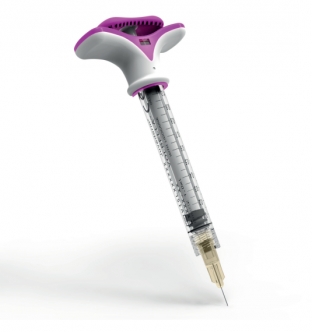
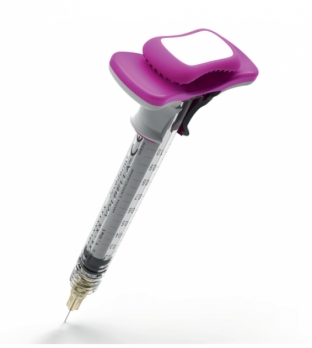
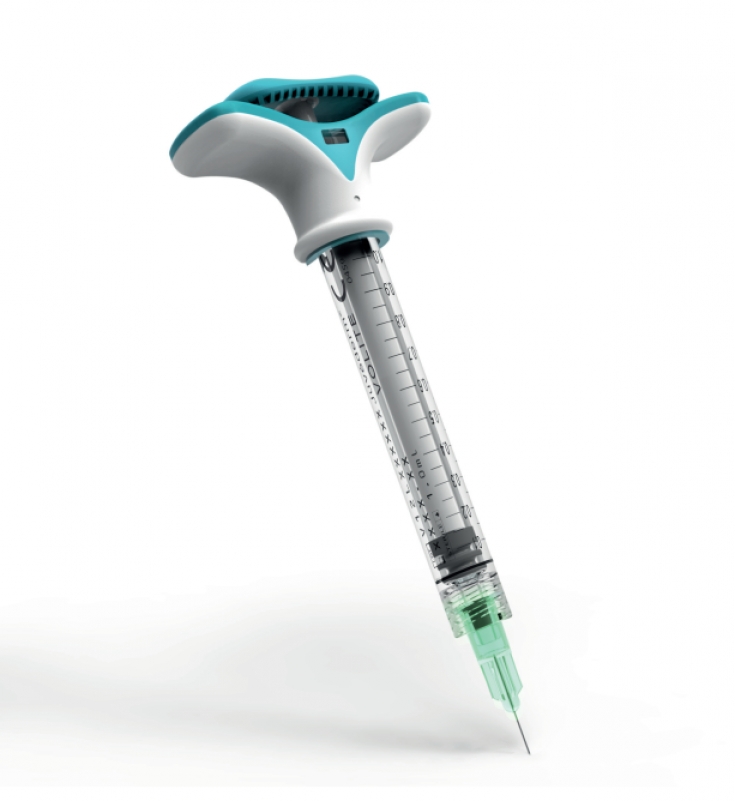
In the photo ULTRA PLUS_SYRINGE_1
This is why the aspiration test is so important in daily practice. But it is not always easy to accomplish, especially when working in difficult areas.
You need to hold the syringe with hyaluronic acid with one hand, pull the plunger with the other and try not to move the needle from the injection site. In this case, the patient may begin to move or speak, including mimic muscles.
Facial Contouring: Filler Selection for Optimal Results
To solve this technical issue, a new stem stop concept.
The rim under the finger rest and the current stop were made of a special ribbed material that allows one-hand suction with the thumb.
This prevents the syringe from sliding and moving.
Gender differences in syringe technique
Have you ever wondered if there is a difference in the technique of working with syringes between men and women?
At all master classes and conferences, we are shown the classical technique of work.

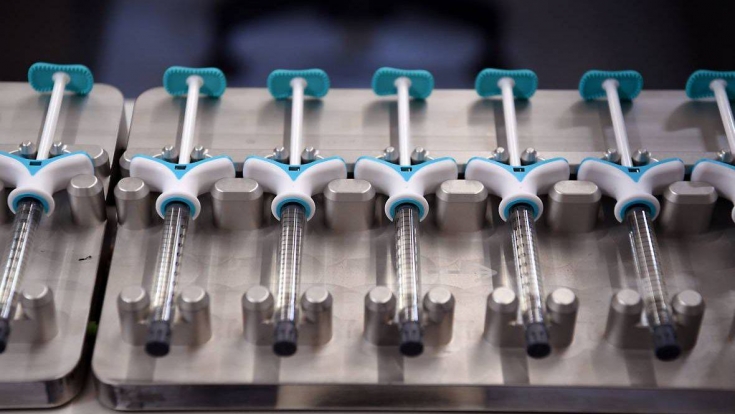
But it turns out that there are big differences in the functionality of stretching the hand in men and women. In addition, there are occupational diseases of the hands in doctors who work a lot with injection techniques. One of the most popular – arthritis of the thumb joint.
Most European doctors of men with joint disease use the technique of pressing on the current stop not with the upper phalanx of the thumb, but with the elevation of the thumb on the inside of the hand.
For such situations, a new ergometric stem stop has been developed, which is convenient for working with any technique.
The color palette of the syringe - small details for the convenience of the doctor
New approaches to the formation of a natural aesthetic appearance are based on the fact that a doctor uses several syringes with different products to work with one patient. Some of them are for deeper introduction (they are denser), others – for superficial (change the quality of the skin).
Cheekbone correction with fillers: how to choose the right drug
For the convenience of work, different colors were chosen, which are used to mark syringes with hyaluronic acid. This helps to accurately and quickly use the drug that is needed. It is not only beautiful, but also convenient.
When choosing which drug to start working with, you should pay attention to small details that show great care and professionalism.
Syringes of the entire product line of the Allergan company – work of art and technology. Try it!
CEO estet-portal.com Elena Stoyanova
On the most common causes of complications, precautions and rules for successful injection facial correction, see the exclusive interview with Dr. Conrad de Boule (Belgium):







Add a comment